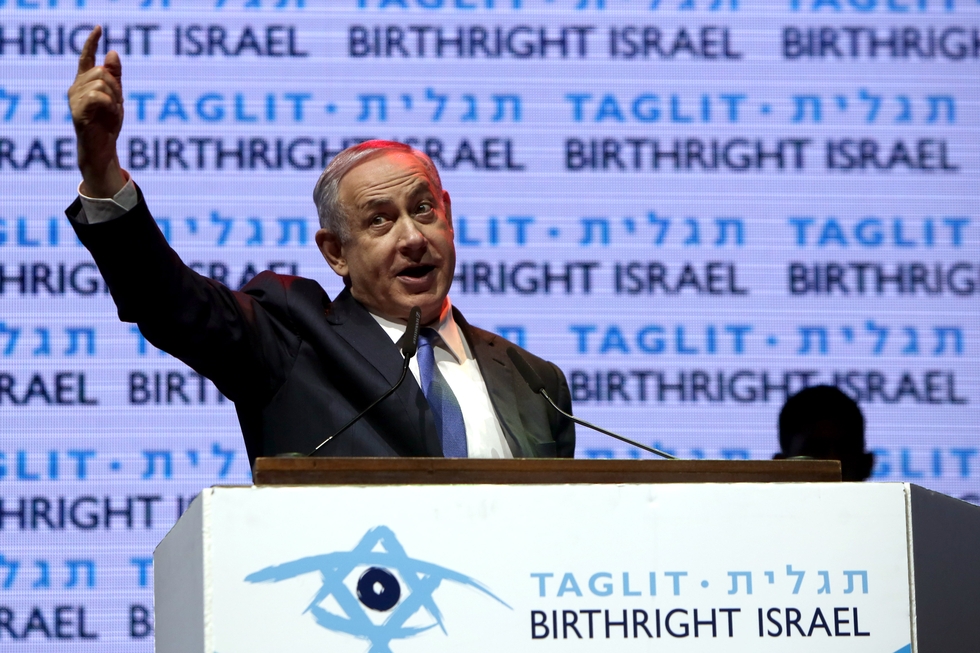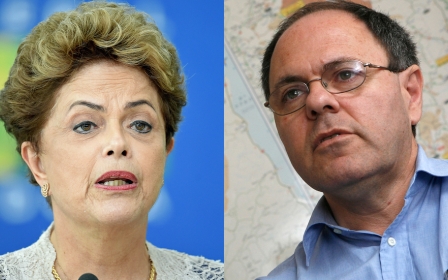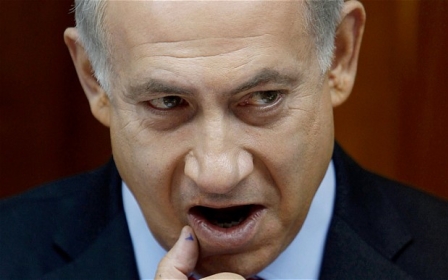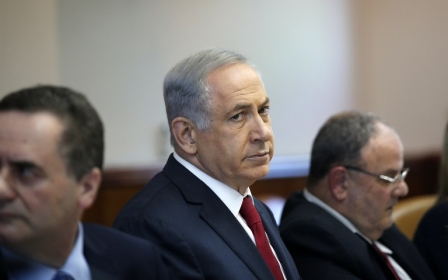Ethiopian Israelis protest after immigration plan axed

Hundreds of Ethiopian Israelis marched in Jerusalem on Sunday after the government cancelled plans to allow their relatives to emigrate from the African nation, calling the move discrimination.
The Israeli government had in November voted to allow the immigration of some 9,100 Ethiopians known as Falash Mura, descendants of Ethiopian Jews who converted to Christianity, many under duress, in the 18th and 19th centuries.
But on 7 March, a statement from Prime Minister Benjamin Netanyahu's office informed members of parliament the decision would not be implemented because of budgetary constraints.
Israel brought the bulk of Ethiopia's Jewish community to the country between 1984 and 1991 under the Law of Return, guaranteeing citizenship to all Jews, but the law does not apply to the Falash Mura. Israel's Ethiopian community includes about 135,000 people.
Police and organisers estimated the crowd at up to 2,000 people for Sunday's march, which ended outside Netanyahu's office.
"Stop the suffering, stop the discrimination, stop the racism," demonstrators chanted, holding signs bearing similar slogans as well as pictures of relatives left behind in Ethiopia.
"Our children, our parents are in Ethiopia," they chanted, marching alongside elderly residents wearing more traditional garb, some leaning on canes.
Antaihe Cheol, a 30-year-old resident of northern Israel, said his father and brother have been waiting to immigrate for 20 years.
"This is simply discrimination," he said.
His friend Ashebo noted that the government actively encourages immigration of Jews from France, the United States and Russia.
"When it comes to Jews from Ethiopia - everyone refuses," he said. "It's embarrassing."
Netanyahu's office said it was working on bringing to Israel "elderly, solitary and dependent Falash Mura to ease their condition".
But "the latest amendment to the budget law does not enable the government to take upon itself significant budgetary commitments to upcoming years, without regulating fiscal sources," the statement read.
The issue will be discussed in the coming months as part of the budget discussions, the premier's office said.
Netanyahu's office considers reuniting Falash Mura families an issue "of humane and social importance".
Leading the demonstration was MP Avraham Neguise, himself an immigrant from Ethiopia and a member of Netanyahu's Likud party.
Along with MP David Amsalem, Neguise has boycotted all parliamentary votes since being told the government was walking back its November decision, and reiterated on Sunday he would continue doing so until the decree was reversed.
Netanyahu's coalition holds only a one-seat majority in parliament.
Revital Swid, a lawmaker from the opposition Zionist Union, also accused the government of racial discrimination.
"Would the government tell even one Jew from Russia, or Europe, or America who had family in Israel, we don't have the money to bring you here?" she asked ahead of the march.
Previous demonstrations by the Ethiopian community against alleged discrimination have led to violence, but Sunday's march was calm.
Middle East Eye propose une couverture et une analyse indépendantes et incomparables du Moyen-Orient, de l’Afrique du Nord et d’autres régions du monde. Pour en savoir plus sur la reprise de ce contenu et les frais qui s’appliquent, veuillez remplir ce formulaire [en anglais]. Pour en savoir plus sur MEE, cliquez ici [en anglais].




